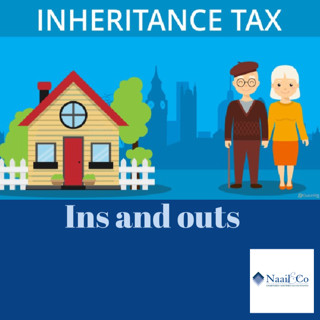In a move that has sent shockwaves through the UK, Chancellor Rachel Reeves has announced a major change to inheritance tax, bringing pensions into the scope of the levy from April 2027. This decision has been met with widespread criticism, with experts warning it will lead to a major shift in financial planning and could leave many families facing unexpected tax bills.
The current inheritance tax (IHT) regime has been in place for decades, allowing individuals to pass on pensions free of the 40% charge. However, Reeves has argued that this exemption has created a loophole, with individuals using pensions as a tax planning vehicle to transfer wealth rather than their original purpose of funding retirement.
This is not just a tax grab but a cruel raid on those who die before their time who have saved responsibly for retirement. Why now would anyone save into a pension knowing that if they die young, the Government will take a 40pc slice?
Pensions Now Included in Inheritance Tax
The new rule, which comes into effect in 2027, will see pensions included as part of an individual's estate when they die. This means that if the total value of the estate, including the pension, exceeds the inheritance tax threshold of £325,000, the beneficiaries will be liable for the 40% tax on the excess.
This change will affect those with defined contribution pensions, which are the most common type of workplace pension, as defined benefit pensions cannot usually be passed on. A defined benefit pension is a type of workplace pension that guarantees a specific income for life, based on your salary and years of service, whereas a defined contribution pension is dependent on how much you have saved in your working life.
Impacts on Financial Planning
Financial experts are warning that the new rule could have a significant impact on financial planning, with many individuals having to rethink their retirement strategies.
Helen Morrissey, head of retirement analysis at Hargreaves Lansdown, said: “The generous treatment of pension death benefits has long been considered low hanging fruit for a government in search of cash. It’s a stance that has set it apart from other savings vehicles with the position where a death occurs pre age 75 particularly generous. It’s led to criticism that people were leaving their pensions untouched so they could be passed down the generations in a tax efficient manner rather than being used to provide an income in retirement.
“Today that fruit has been plucked as pensions will now be made subject to inheritance tax. It’s a move that could prove complex and will need changes to trust law to make workable. A much easier solution would have been a return of the so-called “death tax” that existed pre-Freedom and Choice and it is important that the industry engages with government during the consultation process to make sure unnecessary complication is not introduced.”
She added: “It’s a decision that will upturn many people’s plans as we will see many more people being dragged into paying inheritance tax because their DC pension is now counted as part of their estate. It’s an issue that will not be felt by those with defined benefit pensions as these cannot usually be passed on.
“We will see a flurry of people revisiting their retirement finances. The likelihood is we will see people looking to gift more money to loved ones while they are still alive – for instance money to help people get on the housing ladder. They will also look to spend down their pensions as retirement income rather than leave them untouched, a move which could keep the rest of someone’s estate below the IHT threshold. We may also see an increased interest in annuities as people look to secure a guaranteed income while also keeping their estate below the inheritance tax threshold.”
Criticisms and Concerns
The move has been met with criticism from a number of quarters, with concerns being raised about its impact on individuals and families, as well as the broader economy. Critics have argued that the new rule will unfairly penalize those who have saved responsibly for their retirement, and could lead to a decline in pension contributions.
Standard Life retirement savings director Mike Ambery says: “It’s perhaps no surprise that the Government has decided to bring pensions into scope for inheritance tax as their exemption was little-known to the public.”
He adds that this change now represents a fundamental shift to how wealthier individuals think about accessing their money in retirement. “At present it makes more sense to access Isas and other forms of saving before touching pensions. In time we’re likely to see more pensions, accessed earlier to prevent them from becoming part of people’s IHT bill at a later date.”
He adds: “The end result of this change is that many more people will now be brought into scope for IHT. While there could be some benefit to the Treasury, pensions are a long-term investment and it’s vital that large-scale changes to how they are taxed are well managed to avoid any risk of undermining confidence in pensions and scaring people from engaging with their retirement savings.”
A Balanced Approach?
In an attempt to soften the blow, Reeves has also announced that the inheritance tax thresholds will remain frozen until 2030. This means that the current allowance of £325,000, as well as the additional allowance of £175,000 for a family home, will remain in place for the next six years.
However, critics have argued that the freeze will have the opposite effect, as it will actually lead to more people being brought into the scope of inheritance tax as house prices and asset values continue to rise.
The move to include pensions within IHT is a significant change that is likely to have a profound impact on financial planning. It remains to be seen how individuals and families will adapt to the new rules, but it is clear that the Chancellor's decision has created a new layer of complexity and uncertainty for those planning for their financial future.
The Inheritance Tax Threshold
The inheritance tax threshold is the amount of money that can be passed on to heirs without being subject to inheritance tax. The current threshold is £325,000, and it has been frozen since 2009. This means that the threshold has not kept pace with inflation, and more and more people are now being caught by inheritance tax.
The government has said that it will freeze the inheritance tax threshold until 2030. This means that the threshold will not increase, even though inflation is expected to continue to rise. As a result, even more people are likely to be caught by inheritance tax in the years to come.
The Future of Inheritance Tax
The future of inheritance tax is uncertain. The government has said that it will review the inheritance tax system in the coming years, and it is possible that the threshold will be increased or that other changes will be made to the system. However, it is also possible that the government will decide to maintain the current system, which would mean that even more people will be caught by inheritance tax in the years to come.
What You Can Do
There are a number of things that you can do to minimize your inheritance tax liability. These include:
- Gifting assets during your lifetime. You can give away assets to your heirs during your lifetime without having to pay inheritance tax. However, you will need to make sure that you give away the assets more than seven years before you die, or they will be included in your estate for inheritance tax purposes.
- Making use of exemptions and reliefs. There are a number of exemptions and reliefs available for inheritance tax. For example, you can give away up to £3,000 per person per year without having to pay inheritance tax. You can also give away assets to charities without having to pay inheritance tax.
- Setting up a trust. You can set up a trust to hold your assets. This can help to reduce your inheritance tax liability, as the assets in the trust will not be included in your estate for inheritance tax purposes.
It is always worth seeking independent advice on tax planning. If inheritance tax rates increase or exemptions are altered, those intending to leave an inheritance may need to reassess their options to minimize tax liabilities.
Final Thoughts: A New Era of Inheritance Tax
The new inheritance tax regime has ushered in a new era of tax planning, and individuals will need to be more proactive in managing their financial affairs to minimize their tax liability. As the inheritance tax system continues to evolve, it's crucial to stay informed and seek professional advice to navigate the complexities of estate planning and ensure your hard-earned savings are passed on as intended.



















